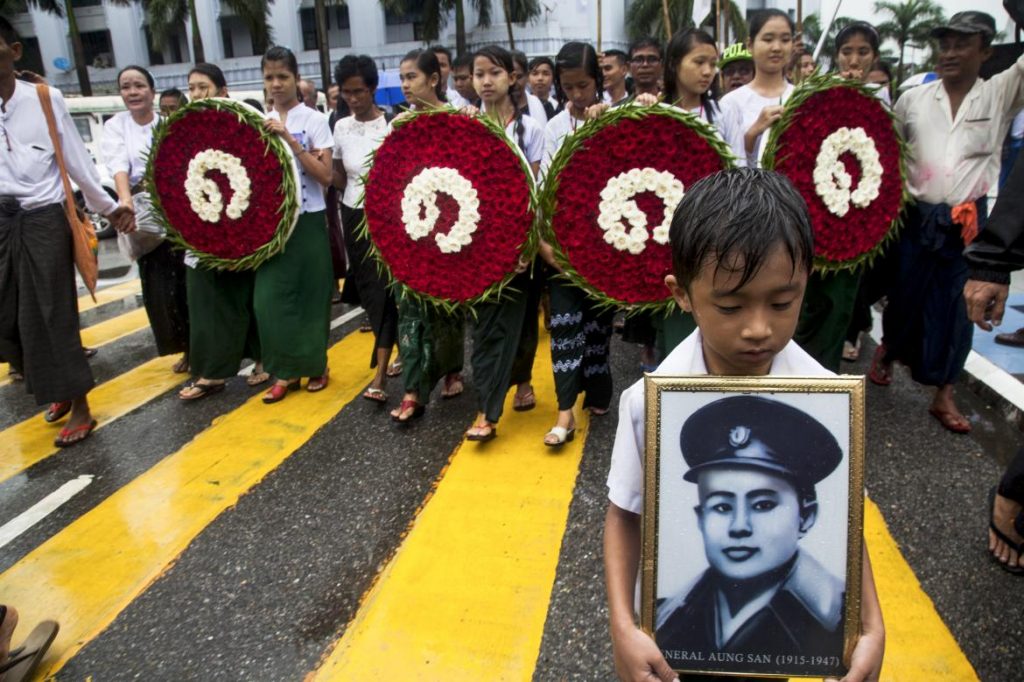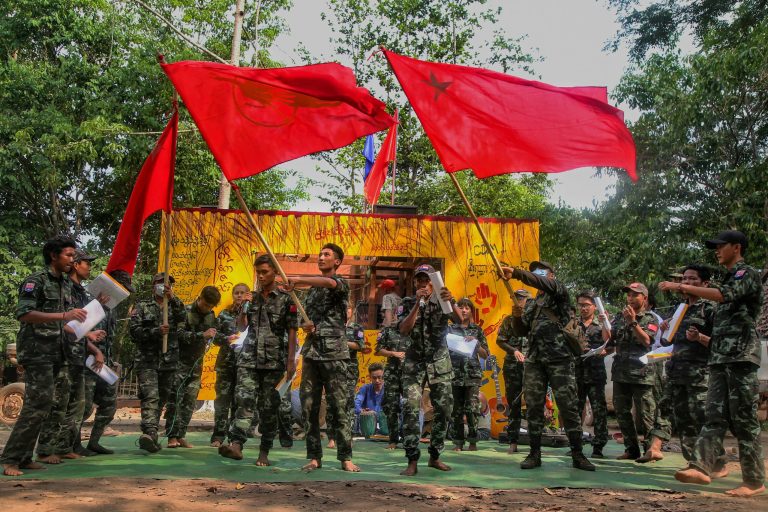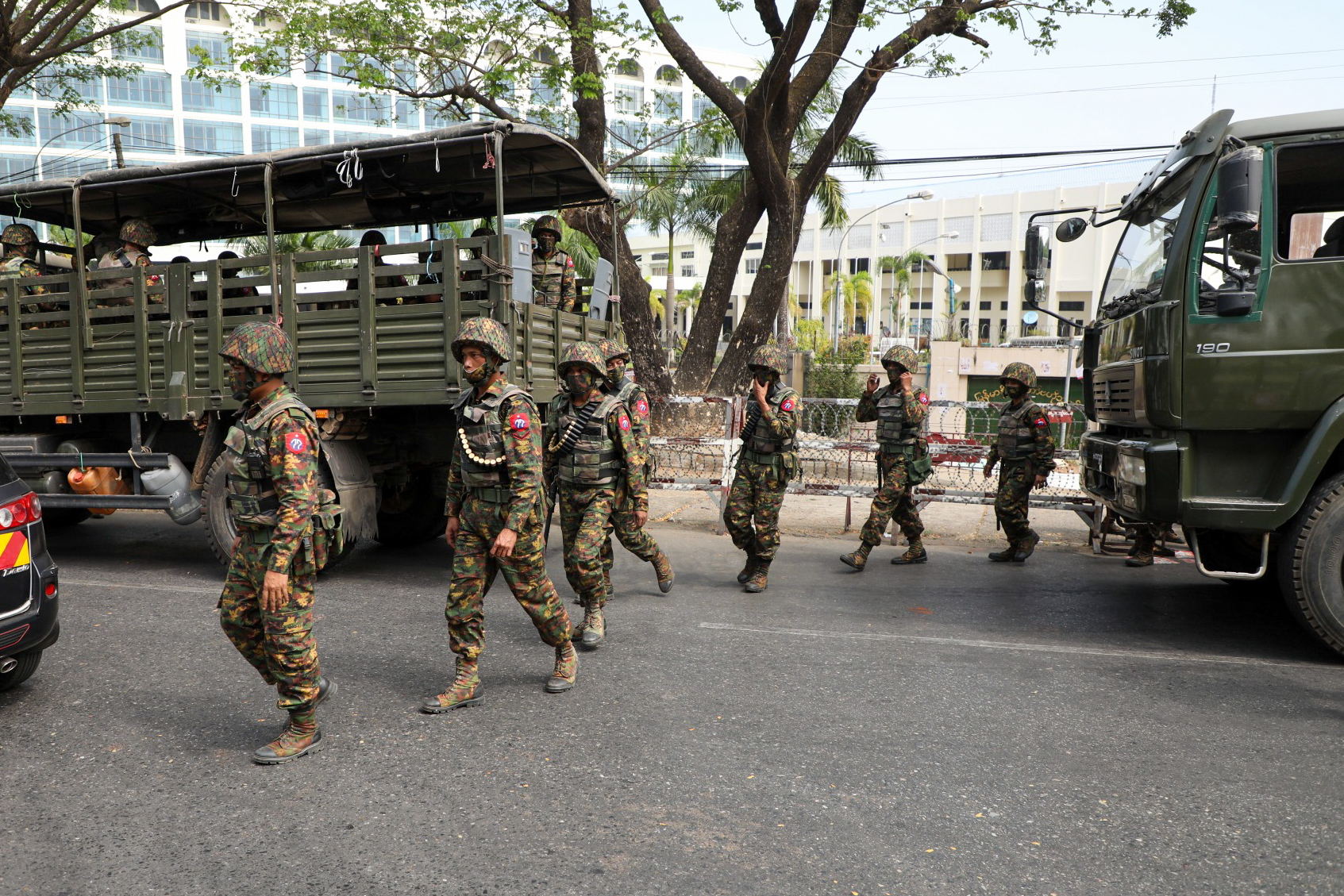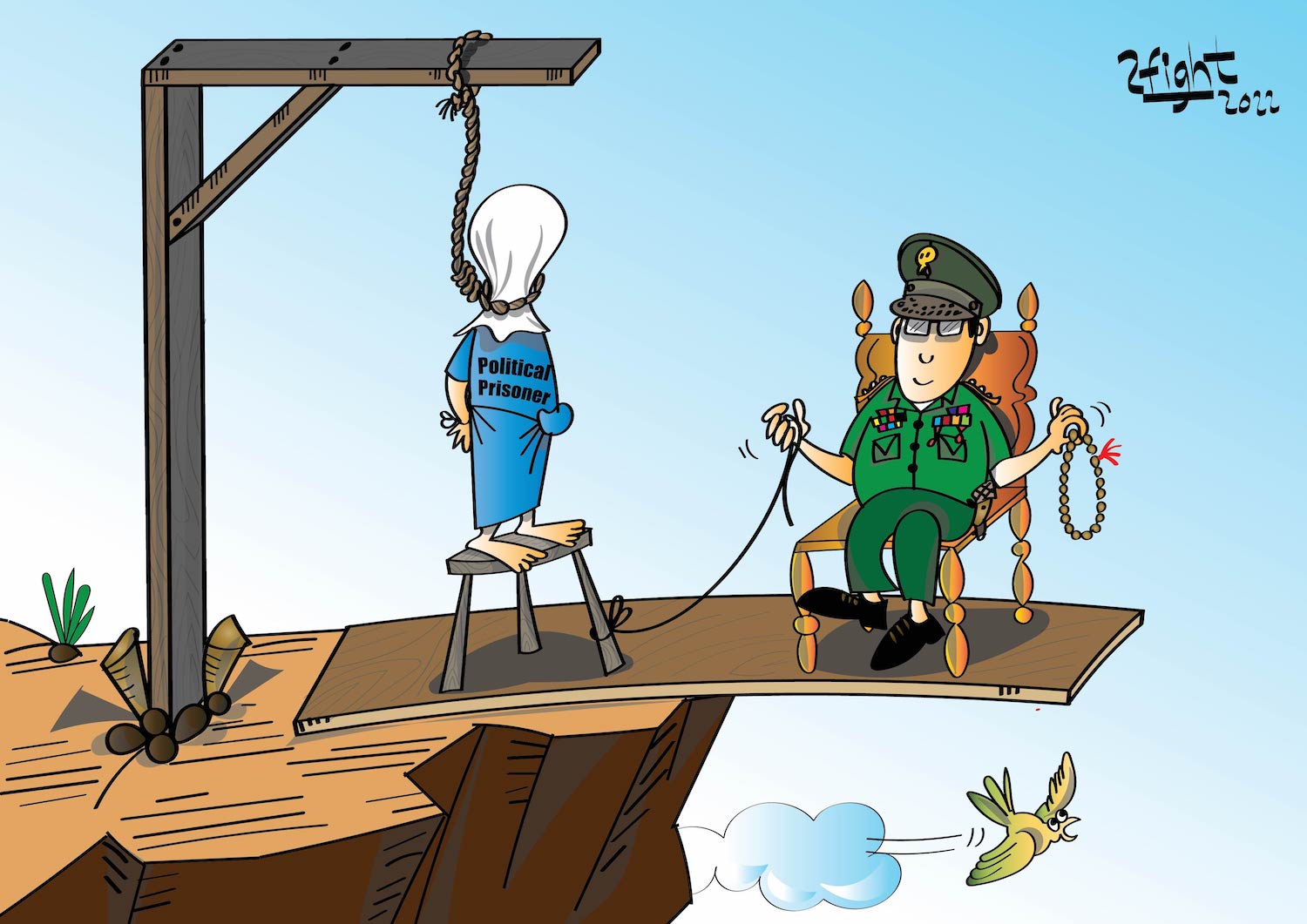By HEIN KO SOE | FRONTIER
YANGON — Two low-profile events were held Tuesday to mark the 29th anniversary of one of the most turbulent events in Myanmar’s modern history, a date that passed by largely unheralded by the government.
In front of Yangon’s City Hall, a group of interfaith religious leaders held an early morning prayer session for those who died during the 8888 uprising and its aftermath. Across town in Thingangyun a ceremony was held at the Damapiya Monastery, close to the headquarters of the 88 Generation Peace and Open Society.
U Min Ko Naing, a senior member of the 88 Generation group, told those assembled that the memory of the 1988 unrest should be used to propel Myanmar forward in the public’s wish for democracy.
“We will remember the value of our blood when we protested in that year, which carried the hope of democratisation and human rights,” he said. “We can say ‘human rights’ now. We can elect our representatives, but not all of them. All of these changes came from 8888.”
Support more independent journalism like this. Sign up to be a Frontier member.
Protesting against years of misrule and economic decline under the Burma Socialist Programme Party government, activists and workers in Yangon staged a protest on the morning of August 8, 1988 that quickly enveloped the country. Six weeks later, the military violently reasserted control over the country, leading to thousands of deaths, and the establishment of a military junta that would rule the country for the next 22 years.
Students at the nation’s universities were at the forefront of the unrest, which also propelled Daw Aung San Suu Kyi into the national spotlight and led to the formation of her National League for Democracy.
Despite the party’s central role in the events of 1988, and despite participating in similar ceremonies in recent years, members of the NLD government did not officially mark the anniversary on Tuesday. State-run media carried a brief article mentioning the twin ceremonies the following day.
Tensions between the 88 Generation group, a civil society network of former student leaders in the 1988 unrest, and the NLD have simmered since the government reneged on overtures to include 88 Generation members in its candidate list for the 2015 general elections. Earlier this year, a faction of the group announced it would establish its own political party ahead of the next national poll in 2020.
Fellow activist Ko Nay Lin told the audience at Thingangyun that the country had yet to come to terms with the events of 1988 and a proper accounting of the unrest had been made more difficult by the decades the former junta suppressed discussion of those weeks.
“So many people are forgetting that day but still the government is silent,” he said.







